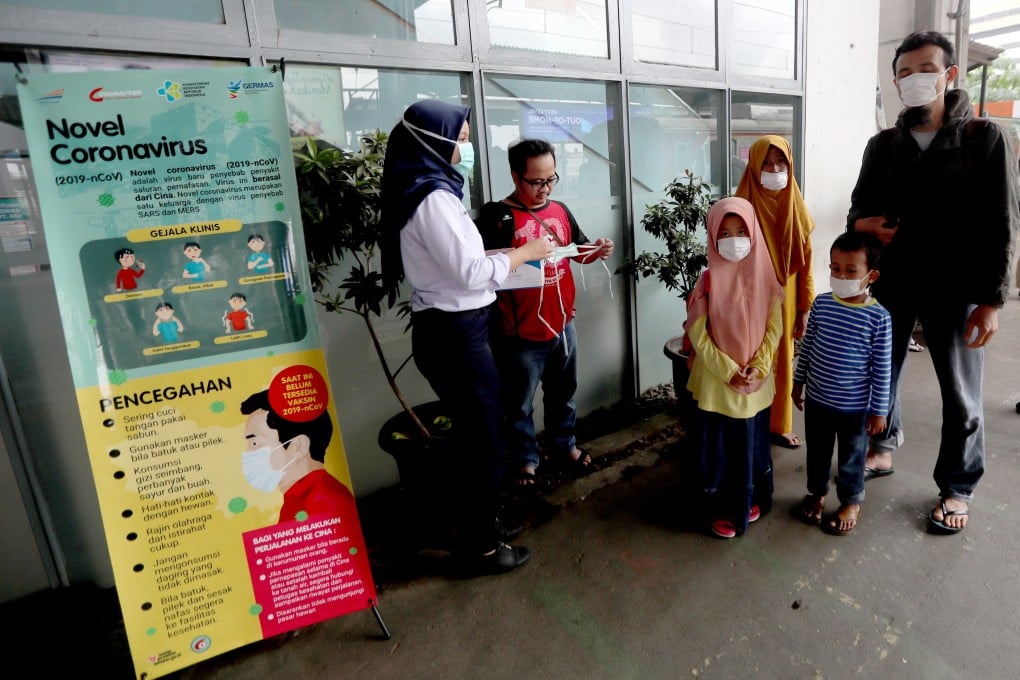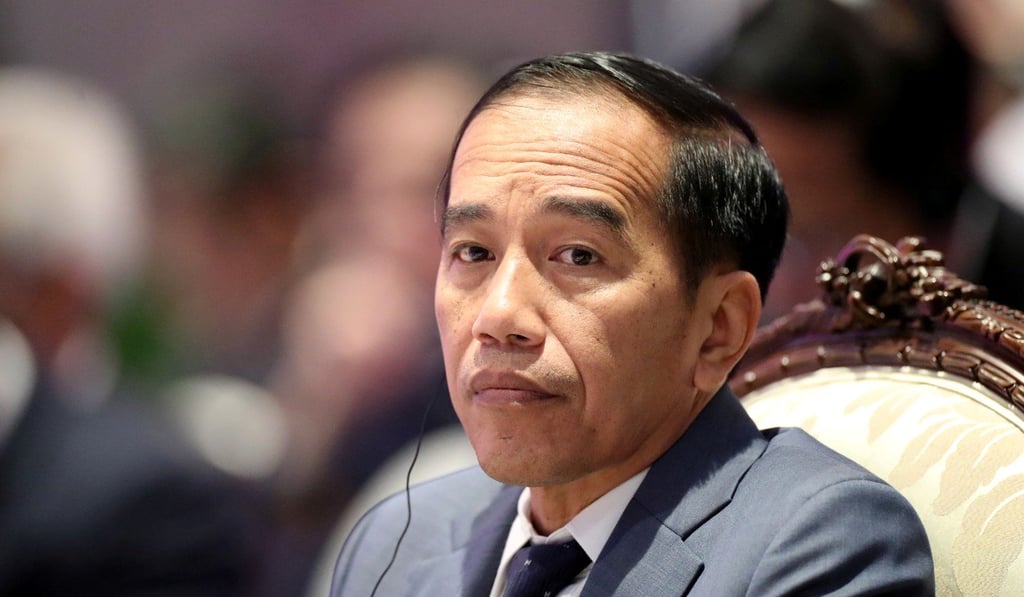Advertisement
Coronavirus: Indonesia confirms first cases, says they are linked to Japanese citizen in Malaysia
- The two patients are a 64-year-old woman and her 31-year-old daughter who came into contact with a Japanese national who works in Malaysia
- There is growing mistrust in the government’s ability to tackle the virus threat, as authorities urge people to stay calm and not overreact
Reading Time:3 minutes
Why you can trust SCMP

Two Indonesians have tested positive for the coronavirus after being in contact with an infected Japanese national, Indonesian President Joko Widodo revealed on Monday, marking the first confirmed cases in the world’s fourth most populous country.
The two people had been hospitalised in Jakarta, Widodo told reporters at the presidential palace in the capital.

Advertisement
The president said a 64-year-old woman and her 31-year-old daughter had tested positive after being in contact with a Japanese national who lived in Malaysia and was found to have the virus after returning from the trip to Indonesia.
Widodo said an Indonesian medical team had traced the movements of the Japanese visitor before uncovering the cases.
Advertisement
“After checks, they were in a sick state. This morning I got a report that the mother and the daughter tested positive for coronavirus,” Widodo said, adding they were being treated at Jakarta’s Sulianti Saroso infectious diseases hospital.
Advertisement
Select Voice
Select Speed
1.00x